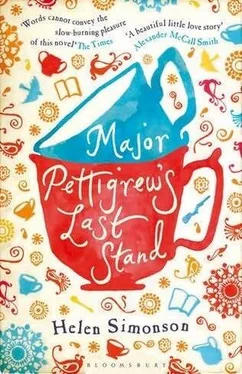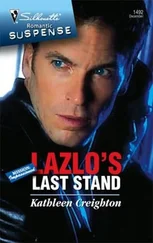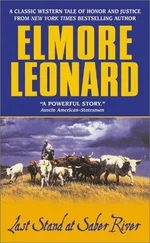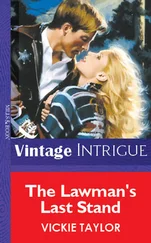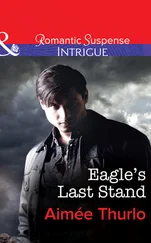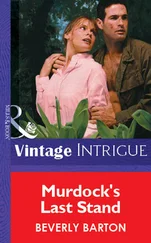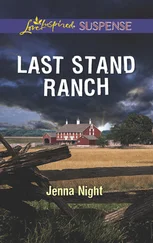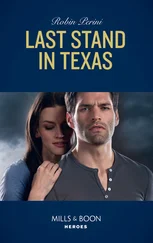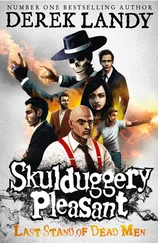“He put on his wedding clothes,” said Mrs. Ali. “Oh, my poor, poor boy.” She stretched out her hand and the Major reached to catch her arm, fearing she might run the last hundred yards or so.
“Easy, now,” said Brian. “Let me get his attention.” He stepped forward and gave a low whistling sound as if, thought the Major, he was calling a gundog to heel. Abdul Wahid turned slightly and saw them.
“Hullo there,” said Brian. He held a hand up in a slow wave. “I was just wondering if I could talk to you a minute.”
“I suppose you want to help me?” asked Abdul Wahid.
“As a matter of fact, I do,” said Brian. “What do you need?”
“I need you to get my aunt away from here,” said Abdul Wahid. “I don’t want her to see.”
“Abdul Wahid, what are you doing?” shouted Jasmina. “I’m not leaving you here.”
“I want her taken away,” said Abdul Wahid, quietly refusing to look at her. “She should not have to endure this.”
“So you don’t want to talk to her?” asked Brian. “That’s fine. If I have the Major here take her away, will you agree to talk to me-just for a bit?” Abdul Wahid seemed to consider this option carefully.
“Please, Abdul Wahid, come home,” said Jasmina. She was crying and the Major reached out a restraining arm, fearing she would try to rush at her nephew. “I won’t leave you.”
“I would prefer to talk to the Major,” said Abdul Wahid. “I will not talk to you.”
“So I’ll get your aunt away to somewhere dry and warm and you’ll sit tight and chat with this gentleman?”
“Yes,” said Abdul Wahid.
“He’s got a gun, you know,” said Brian. “You sure you can trust him?”
“What are you doing?” whispered the Major in fierce anxiety. “Are you trying to provoke him?” Abdul Wahid, however, actually produced one of his short barking laughs.
“Are you afraid he has come to shoot me?” he asked. “It would not exactly spoil my plans now, would it?”
“Okay, then,” said Brian. “I think we can make that deal.” He turned to the Major and whispered. “His laughing is a good sign. I think we should play along.”
“I won’t leave,” said Jasmina. She turned her tearstained face to the Major and he felt the full enormity of what would come next. “I could never forgive myself.”
“If you don’t leave, you may never forgive yourself,” said Brian. “Best thing to do is give them what they want, within reason. No promises, though.”
“If I leave him in your hands and you can’t keep him safe…” she began. She turned her face away, unable to continue.
“You may very well never forgive me,” finished the Major. The words tasted bitter in his mouth. “I do understand.” She looked at him and he added, “Whoever stays, whoever goes, I fear his death would come between us just the same, my dear.” He took her hand in his and squeezed it. “Let me play the man’s part now and fight for Abdul Wahid and for us, my love.”
“Here you are,” said Brian, taking something from a large backpack. “Sometimes they like a cup of tea. I always keep a thermos handy.”
He waited while Brian and Jasmina climbed the slope, stopping to collect the dazed but conscious old woman on their way. They did not look back. Out of the corner of his eye he watched Abdul Wahid, who remained motionless. Finally, he turned and walked slowly downhill, flanking left to come parallel to the young man while maintaining a respectful distance.
“Thank you,” said Abdul Wahid. “This was no place for a woman like my aunt.”
“This is no place for any of us,” said the Major, peering into the abyss of churning whitecaps and jagged rocks that seemed to suck at his feet from hundreds of feet below. “All this drama is very bad for the digestion.” He stretched his back. “Come to think of it, I didn’t have much lunch.”
“I am sorry,” said Abdul Wahid.
“Would you like a cup of tea?” asked the Major. “That man Brian gave me a thermos of tea and I have some Kendal Mint Cake.”
“Are you mocking me?” said Abdul Wahid. “Do you think I’m a child, to be persuaded with food?”
“Not at all,” said the Major, abandoning the casual approach at once. “I’m just terrified, as you might expect-and a little cold.”
“Is it cold? asked Abdul Wahid.
“It’s very cold,” said the Major. “Wouldn’t you like to go somewhere warm and talk things through over a nice hot dinner?”
“Did you see Amina?” asked Abdul Wahid. The Major nodded. “Will she live?” he added.
“She asked for you in the ambulance,” said the Major. “I could take you to her. I have my car.” Abdul Wahid shook his head and rubbed the back of his hand over his eyes.
“It was never meant to be,” he said. “Every day more complication, more compromise. I see that now.”
“That’s just not true,” said the Major. “You’re talking like a fool.” He felt the note of desperation in his own voice.
“So much shame,” he said. “It hangs around me like chains. I ache to scrape it all off in the sea and be clean for-” He stopped abruptly and the Major sensed he felt unworthy to even mention the name of his creator.
“I know something of shame,” said the Major. He had intended to point out that suicide was not allowed in Islam, but a restatement of rules he already knew did not seem constructive in the immediacy of wind, rain, and a sheer drop of five hundred feet. “How can we not all feel it? We are all small-minded people, creeping about the earth grubbing for our own advantage and making the very mistakes for which we want to humiliate our neighbors.” As he risked a peek over the sharp chalk edge, his stomach churned at the jagged teeth of rocks waiting below them and he almost lost his train of thought. “I think we wake up every day with high intentions and by dusk we have routinely fallen short. Sometimes I think God created the darkness just so he didn’t have to look at us all the time.”
“You speak of general burdens, Major. What of the individual shame that burns the soul?”
“Well, if you want specifics,” began the Major, “look at this gun of which I’m so proud.” They both considered the rain beading on its polished stock and dull steel barrel. “My father, on his deathbed, gave one of these guns to me and one to my younger brother and I was consumed with disappointment that he did not give me both and I chewed on my own grievance as he lay dying before me and I chewed on it while I wrote his eulogy and damn me if I wasn’t still chewing on it when my own brother died this autumn.”
“It was your right as the eldest son.”
“I was more proud of these guns than I was of your aunt Jasmina. For the sake of these guns, I let down the woman I love in front of a whole community of people, most of whom I can barely tolerate. I let her leave, and I will never get rid of that sense of shame.”
“I let her leave so that I could acquire all her worldly possessions,” said Abdul Wahid quietly. “With death, this debt will also be wiped out.”
“This is not the solution,” said the Major. “The solution is to make things right, or at least to work every day to do so.”
“I have tried, Major,” he said. “But in the end I cannot reconcile my faith and my life. At least this way, the debt of honor is paid and Amina and George can go on with their lives.”
“How is suicide to be reconciled?” asked the Major.
“I will not commit suicide,” said Abdul Wahid. “It is haram . I will merely pray at the edge and wait for the wind to carry me where it will. Perhaps to Mecca.” He opened his arms and the heavy shirt billowed and snapped in the wind like a luffing sail. The Major felt the tenuous connection of conversation was slipping away from him. He looked around and thought he saw some heads bobbing behind bushes. He waved energetically, but this proved to be a mistake. Abdul Wahid also saw the volunteers and he lost all trace of animation from his face.
Читать дальше
